We live in tumultuous times, but it is our duty to try to emerge from them with something positive. From a complex situation, initiatives can arise that represent a step forward on the path to social awareness and a more sustainable world. This is what is happening in the heart of many companies and organizations, some of which will come together at Sustainability & the Human Element, a virtual conference organized by WWD, to discuss the future of the fashion industry.
Socio-political unrest, far from halting progress toward a more conscious and sustainable society, has served as a catalyst for change. Companies from all over the world have taken advantage of the financial constraints caused by the coronavirus to embrace more responsible production. Others have joined forces to collaborate on social and environmental causes. And collectives, associations, and commercial brands have decided to combine art and culture with socio-political debate. Here are some examples.
Carbon: The New Calorie
Just as the food industry must include information about calories or the origin of its products on its packaging, the idea of implementing a carbon label has emerged, informing consumers about the environmental impact of what they buy. Not only for food but globally. In fact, Logitech is one of the first companies to implement this initiative. The technology company is including information about the carbon footprint of its products on all its packaging. With initiatives like this, consumers can make much more conscious purchases.

The new carbon label that Logitech will include on its packaging.
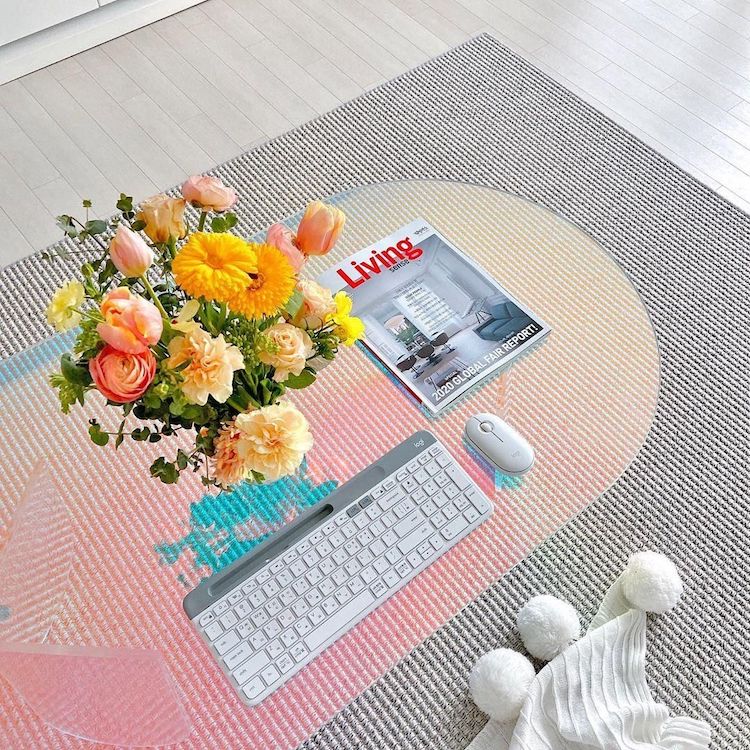
Return to Local Production
With COVID-19, many companies saw their supply chains and outsourced manufacturing break down. Dame, a sustainable tampon manufacturing company, was one of them. The company used to manufacture fabric cases for its applicators in collaboration with a women’s empowerment charity in India. But with Covid, the factory closed, and they were forced to reinvigorate local production.
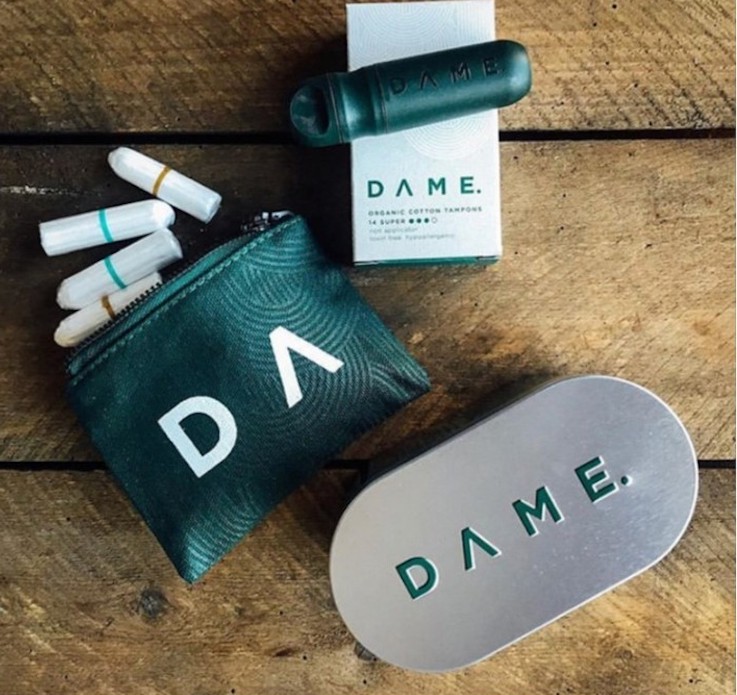
Dame manufactures sustainable reusable tampons and applicators.
For production, they contacted Fine Cell Work, a UK charity that employs prisoners in a sewing and embroidery workshop. For fabrics, they turned to two local manufacturers who donated their offcuts. Thanks to this, the carbon footprint of their cases was reduced by 87%.
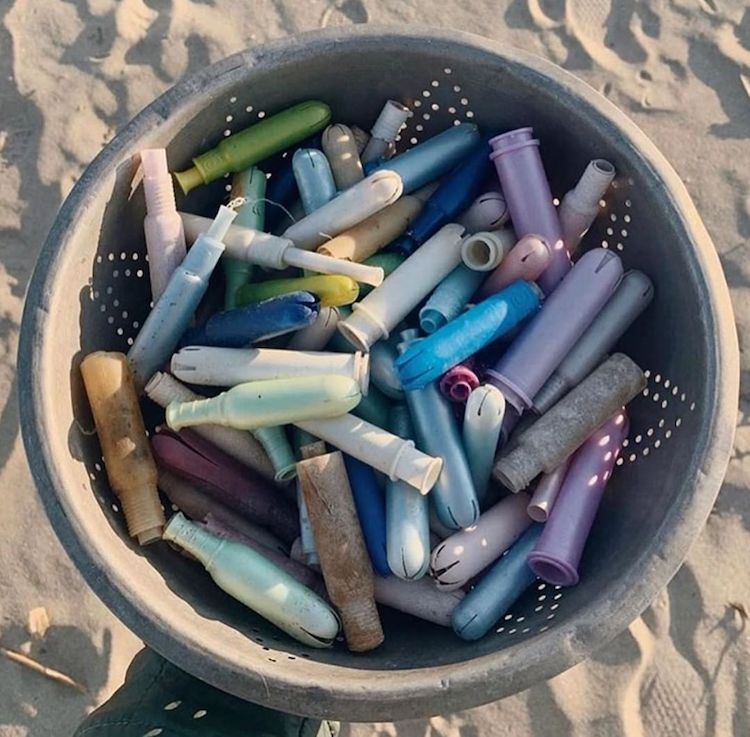
Large quantities of plastic are used in the beauty industry.
Fighting for the Oceans
Many companies take advantage of World Oceans Day (June 8), Recycling Day (May 17), etc., to launch special collections that are more environmentally friendly or collaborate with an organization. This year, to celebrate World Oceans Day, Pangaia launched the Ocean collection, featuring bright blue sportswear made from 100% certified organic cotton and dyed with non-toxic dye certified by Oeko-Tex. Pangaia is a company committed to the environment. For every garment sold, a mangrove is planted, which offsets one ton of CO2. Additionally, they have just achieved a carbon footprint of 0.
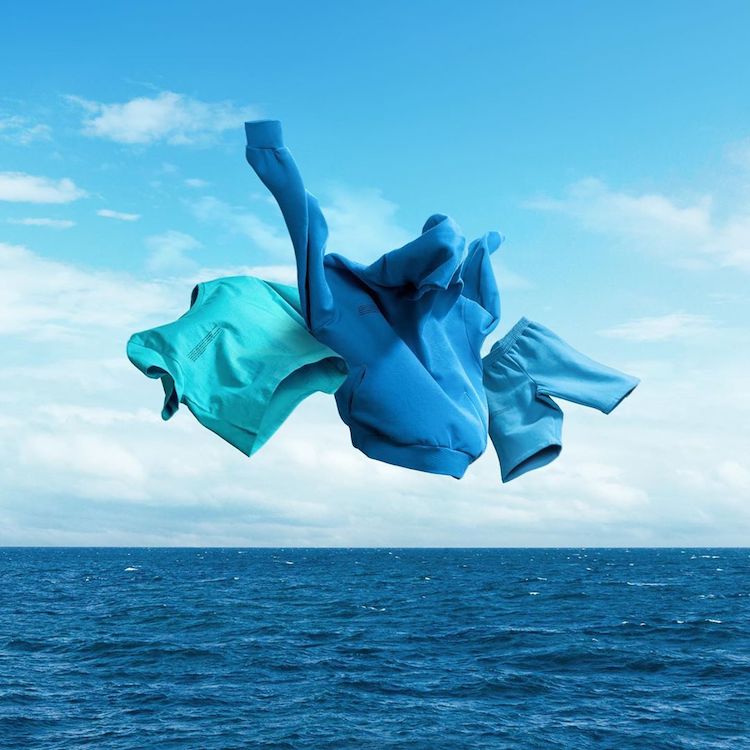
Pangaia Ocean Collection.
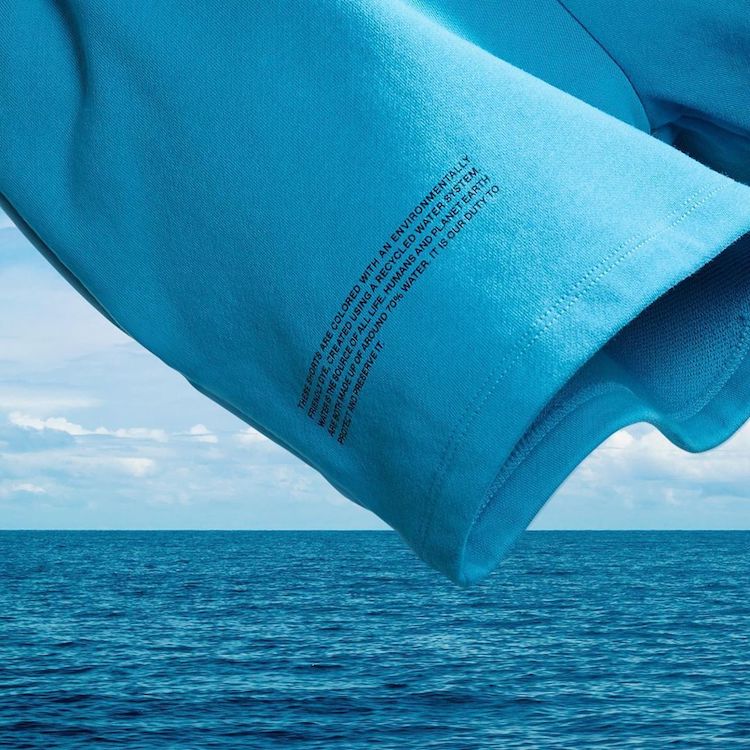
The Ocean collection is made with 100% certified organic cotton and Oeko-Tex certified non-toxic dye.
A New Life for Recycled Materials
Jewelry giant Pandora aims to increase the use of recycled gold and silver from 70% to 100% by 2025. A much more sustainable option, as recycled silver entails one-third of the carbon emissions of new silver, and recycled gold, 600 times less. Besides, it does not imply a loss of quality because these metals can be recycled indefinitely and still retain the same properties.

Pandora Jewellery.
Art, Racial Equality, and Environmentalism
The Earth Issue es un colectivo de artistas y creativos que unen bellas artes y ambientalismo. Su objetivo es hacer del arte de vanguardia un micrófono para la discusión sobre el cambio climático. Defienden la creatividad como una de las herramientas más poderosas del cambio social, por eso, en respuesta al movimiento Black Lives Matter, crearon la campaña “The Freedom Fundraiser“. En ella, se organizó una venta de fotografías con la que se recaudaron más de 200.000 libras esterlinas para apoyar a distintas organizaciones y causas que luchan por la justicia social.
The Earth Issue is a collective of artists and creatives that combine fine arts and environmentalism. Their goal is to make cutting-edge art a microphone for discussing climate change. They advocate creativity as one of the most powerful tools for social change, so in response to the Black Lives Matter movement, they created the “The Freedom Fundraiser” campaign. In it, a photography sale was organized, raising over £200,000 to support various organizations and causes fighting for social justice.

Some of the images that were offered for sale in The Earth Issue’s “The Freedom Fundraiser” campaign.
Building Bridges Toward a More Sustainable Fashion
On September 15, Sustainability & the Human Element, a virtual conference organized by WWD, will bring together representatives from some of the world’s leading fashion and beauty companies to discuss the future of the industry. An industry that urgently needs to shift towards a more sustainable vision. At the event, opinions can be exchanged with some of the key players in the sector, learn how beauty brands are moving towards zero waste, debate how to re-educate consumers on quality over quantity or find out if there are new economic possibilities in this new concept of industry.

Last year, the conference focused on the influence of the LGBTQ+ community.
The companies and projects mentioned in this article are featured in WGSN’s Sustainability Bulletin.
Images courtesy of the mentioned brands.




